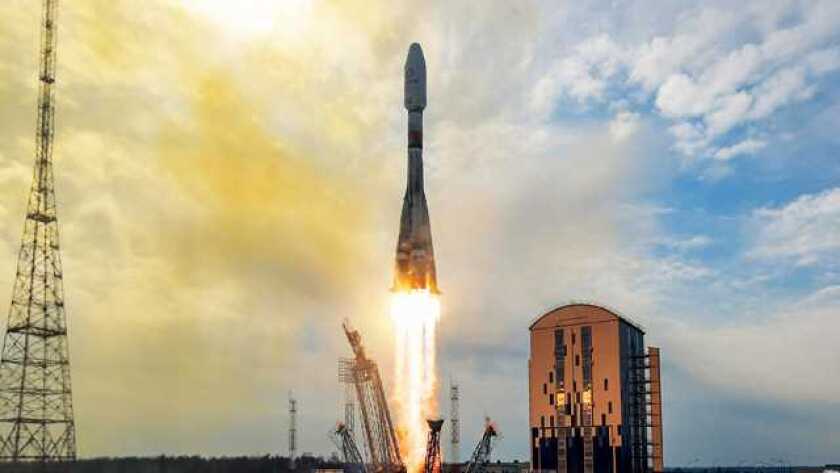The company, which was rescued from collapse last year by the UK government and the Indian company Bharti Global, said this was a key moment in its return.
Meanwhile the company is claiming that its service will work at 500Mbps with latency of 32ms.
The launch, conducted by French company Arianespace in the far east of Russia, saw the successful launch of all 36 satellites on board, to take OneWeb’s total in service to 146.
OneWeb CEO Neil Masterson said: “The next launch in the series is scheduled for the end of April, as we continue our drive towards commercial service this year.”
The company plans to serve from 50° north latitude to the Arctic this year. The fiftieth parallel runs through the Lizard peninsula at the southern tip of the British mainland.
OneWeb said: “These services will cover the United Kingdom, Alaska, northern Europe, Greenland, Iceland, the Arctic Seas and Canada, and will be switched on before the end of the year.”
After lift-off on 25 March at 02:47 GMT, OneWeb’s satellites separated from the Soyuz rocket and were dispensed in nine batches over a period of almost four hours, with signal acquisition on all 36 satellites confirmed.
OneWeb says service from the 50° north to the Arctic by the end of the year — an apparent slip from the original plan of October. The company says it intends to make global services available in 2022.
Masterson commented: “OneWeb is rising to the challenge of our mission to provide connectivity to everyone, everywhere, all the time.”
Earlier in March OneWeb demonstrated its capabilities to the US Department of Defense (DoD), showing that its then 110 satellites in service — before this week’s launch — could provide data rates up to 500Mbps at latency levels as low as 32ms.
OneWeb head of government sales Dylan Browne said at the event: “This hugely successful demo shows how government customers including the US DoD can benefit from our innovative solution to support their rapidly evolving needs for low latency, high bandwidth, affordable and reliable global communications, enabled through innovative internet broadband coverage.”
The initial 648 satellites form what OneWeb executive chairman Sunil Bharti Mittal called “gen one” in his interview with Capacity earlier this year. The second generation is planned for service in 2024-25.






